|
Books Should Be Free Loyal Books Free Public Domain Audiobooks & eBook Downloads |
|
|
Books Should Be Free Loyal Books Free Public Domain Audiobooks & eBook Downloads |
|
Top Authors |
|---|
|
Book type:
Sort by:
|
By: William Beatty, M.D. (1773-1842) | |
|---|---|
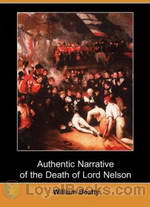 The Death of Lord Nelson
The Death of Lord Nelson
“The Surgeon of the late illustrious Lord NELSON feels himself called upon, from the responsible situation which he held on the eventful day of the 21st of October 1805, to lay before the British Nation the following Narrative. It contains an account of the most interesting incidents which occurred on board the Victory. (Lord NELSON’s flag-ship) from the time of her sailing from England, in the month of September, till the day of battle inclusively”. – William Beatty | |
By: Owen Wister (1860-1938) | |
|---|---|
 The Virginian
The Virginian
Ostensibly a love story, the novel really revolves around a highly mythologized version of the Johnson County War in 1890’s Wyoming … The novel takes the side of the large ranchers, and depicts the lynchings as frontier justice, meted out by the protagonist, who is a member of a natural aristocracy among men. | |
 The Dragon of Wantley
The Dragon of Wantley
A novel, The Dragon of Wantley, was written by Owen Wister (best known as the author of The Virginian) in 1892. Published by Lipincott Press, the story is a comic "burlesque" (in the author's words), concerning the "true" story of the Dragon. It is a romantic story set at Christmastime in the early 13th century. The book was a surprise success, going through four editions over the next ten years. This is the 1895 edition. | |
 Red Men and White
Red Men and White
These eight stories are made from our Western Frontier as it was in a past as near as yesterday and almost as by-gone as the Revolution; so swiftly do we proceed. They belong to each other in a kinship of life and manners, and a little through the nearer tie of having here and there a character in common. Thus they resemble faintly the separate parts of a whole, and gain, perhaps, something of the invaluable weight of length; and they have been received by my closest friends with suspicion. ...When... | |
 Philosophy 4: A Story of Harvard University
Philosophy 4: A Story of Harvard University
Owen Wister's wry humor enlivens this comedic story of three sophomores during exam week at Harvard. | |
 Lin McLean
Lin McLean
Lin McLean is an unaffected, attractive young cowboy in the Wyoming territory before statehood. This book is various stories in his life. | |
 The Jimmyjohn Boss and Other Stories
The Jimmyjohn Boss and Other Stories
This is the fifth published book of Owen Wister, author of the archetypical Western novel, The Virginian. Published in 1900, it comprises eight Western short stories. | |
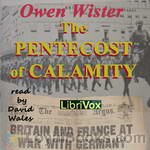 The Pentecost of Calamity
The Pentecost of Calamity
Nonfiction. Appalled by the savagery of World War I, Owen Wister in 1915 published an attempt to move the United States out of neutrality into joining the Allies against Germany. His aim was the quicker defeat of that nation. (Wister: “the new Trinity of German worship – the Super-man, the Super-race, and the Super-state.”) He was but one of many literary personages who joined in this effort. A moving quote: “Perhaps nothing save calamity will teach us what Europe is thankful to have learned again – that some things are worse than war, and that you can pay too high a price for peace; but that you cannot pay too high for the finding and keeping of your own soul.” | |
 Lady Baltimore
Lady Baltimore
Augustus visits King's Port, South Carolina, at the request of his Aunt Carola, and at her expense. She wants him to research geneaologies and records to find proof that he is descended from royalty so that he can join her exclusive club, the Colonial Society. While there, he becomes involved in a love affair between John Mayrant and Eliza La Heu. | |
 A Straight Deal or The Ancient Grudge
A Straight Deal or The Ancient Grudge
| |
 Mother
Mother
| |
 How Doth the Simple Spelling Bee
How Doth the Simple Spelling Bee
| |
By: Arthur William Knapp (1880-1939) | |
|---|---|
 Cocoa and Chocolate: Their History from Plantation to Consumer
Cocoa and Chocolate: Their History from Plantation to Consumer
As that heavenly bit of chocolate melts in our mouths, we give little thought as to where it came from, the arduous work that went in to its creation, and the complex process of its maturation from a bean to the delicacy we all enjoy. This “little book” details everything you have ever wanted to know (and some things you never knew you wanted to know) about cocoa and chocolate from how the trees are planted and sustained to which countries produce the most cacao beans. Do cacao beans from various... | |
By: William Joseph Long (1867-1952) | |
|---|---|
 Outlines of English and American Literature : an Introduction to the Chief Writers of England and America, to the Books They Wrote, and to the Times in Which They Lived
Outlines of English and American Literature : an Introduction to the Chief Writers of England and America, to the Books They Wrote, and to the Times in Which They Lived
| |
 Ways of Wood Folk
Ways of Wood Folk
Late nineteenth-century naturalist William J. Long invites us in to the secret worlds of the woodland animals. Containing Long's own animal observations along with stories related to him by other humans who inhabit the woods, these stories give us an insight into the behavior of wild animals as they go about their lives in their own secret places deep in the forests of eastern North America. Although Long was accused in his day of anthropomorphizing the animals he wrote about, readers who are familiar with any of the animals he writes of will have glimpses of recognition at behaviors they have seen for themselves and explore the deeper meanings these actions have in that animal's life... | |
 Wilderness Ways
Wilderness Ways
Late nineteenth-century naturalist William J. Long invites us into the secret worlds of woodland animals in this, his second, fascinating book. Long's stories of the secret lives of woodland animals come from time he spent in the woods, observing the behaviors and characteristics of the wilderness inhabitants directly. His method? Sit quietly, wait (sometimes for hours), and the animals will come. This book, unlike his first, Ways of Wood Folk, seems to be directed at his critics who accused him... | |
 Secrets of the Woods
Secrets of the Woods
The unique merit of this nature student rests in his fascinating style of writing, which invariably interests young and old; for without this element his pioneer work in the realm of nature would now be familiar only to scientists, introducing people everywhere into the wonderland of nature hitherto entirely closed to all. This is another chapter in the shy, wild life of the fields and woods. Little Toohkees, the wood mouse that dies of fright in the author’s hand; the mother otter, Keeonekh,... | |
By: Stella M. Francis | |
|---|---|
 Campfire Girls at Twin Lakes or The Quest of a Summer Vacation
Campfire Girls at Twin Lakes or The Quest of a Summer Vacation
“Girls, I have some great news for you. I’m sure you’ll be interested, and I hope you’ll be as delighted as I am. Come on, all of you. Gather around in a circle just as if we were going to have a Council Fire and I’ll tell you something that will—that will—Teddy Bear your teeth.” A chorus of laughter, just a little derisive, greeted Katherine Crane’s enigmatical figure of speech. The merriment came from eleven members of Flamingo Camp Fire, who proceeded to form an arc of a circle in front of the speaker on the hillside grass plot near the white canvas tents of the girls’ camp. (Gutenberg) | |
 Campfire Girls In The Allegheny Mountains or, A Christmas Success Against Odds
Campfire Girls In The Allegheny Mountains or, A Christmas Success Against Odds
The Camp Fire Girls books is a series of fiction novels written for children by various authors from 1912 into the 1930s. (Wikipedia) | |
By: Thomas Gilbert Pearson (1873-1943) | |
|---|---|
 The Bird Study Book
The Bird Study Book
Do you enjoy birdwatching? Would you like to learn a little more about the early conservations efforts to protect wild birds? In the Preface to The Bird Study Book, Pearson tells us “This book was written for the consideration of that ever-increasing class of Americans who are interested in acquiring a greater familiarity with the habits and activities of wild birds. Attention is also given to the relation of birds to mankind and the effect of civilisation on the bird-life of the country. ” An avid ornithologist, T... | |
By: Ruth Edna Kelley | |
|---|---|
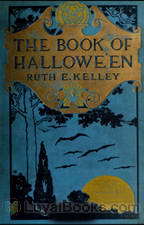 The Book of Hallowe'en
The Book of Hallowe'en
This book is intended to give the reader an account of the origin and history of Hallowe’en, how it absorbed some customs belonging to other days in the year,—such as May Day, Midsummer, and Christmas. The context is illustrated by selections from ancient and modern poetry and prose, related to Hallowe’en ideas. | |
By: Leopold von Sacher-Masoch | |
|---|---|
 Venus in Furs
Venus in Furs
The framing story concerns a man who dreams of speaking to Venus about love while she wears furs. The unnamed narrator tells his dreams to a friend, Severin, who tells him how to break him of his fascination with cruel women by reading a manuscript, Memoirs of a Supersensual Man.This manuscript tells of a man, Severin von Kusiemski, so infatuated with a woman, Wanda von Dunajew, that he requests to be treated as her slave, and encourages her to treat him in progressively more degrading ways. At... | |
By: Tobias Smollett | |
|---|---|
 The Adventures of Peregrine Pickle
The Adventures of Peregrine Pickle
The Adventures of Peregrine Pickle is a picaresque novel by the Scottish author Tobias Smollett (1721 – 1771), first published in 1751, and revised and reissued in 1758. It is the story of the fortunes and misfortunes of the egotistical dandy Peregrine Pickle, and it provides a comic and caustic portrayal of 18th century European society. | |
 The Expedition of Humphry Clinker
The Expedition of Humphry Clinker
The Expedition of Humphry Clinker was the last of the picaresque novels of Tobias Smollett, and is considered by many to be his best and funniest work. Published in London on 17 June 1771, it is an epistolary novel, presented in the form of letters written by six different characters: Matthew Bramble, a Welsh Squire; his sister Tabitha; their niece and nephew, Jery and Lydia Melford; Tabitha’s maid Winifred Jenkins; and Lydia’s suitor, Wilson. Much of the comedy arises from differences in the descriptions of the same events by different participants... | |
By: K. Langloh Parker | |
|---|---|
 Australian Legendary Tales Folk-Lore of the Noongahburrahs As Told To The Piccaninnies
Australian Legendary Tales Folk-Lore of the Noongahburrahs As Told To The Piccaninnies
A Collection of Australian Aboriginal Legendary Folk-Lore Tales, legends of the Narran tribe, known among themselves as Noongahburrahs. | |
By: George Berkeley (1685-1753) | |
|---|---|
 A Treatise Concerning the Principles of Human Knowledge
A Treatise Concerning the Principles of Human Knowledge
A Treatise Concerning the Principles of Human Knowledge, Part 1 (Commonly called “Treatise” when referring to Berkeley’s works) is a 1710 work by the Irish Empiricist philosopher George Berkeley. It largely seeks to refute the claims made by his contemporary John Locke about the nature of human perception. Both Locke and Berkeley agreed that there was an outside world, and it was this world which caused the ideas one has within one’s mind. Berkeley sought to prove that the outside world was also composed solely of ideas, suggesting that “Ideas can only resemble Ideas”... | |
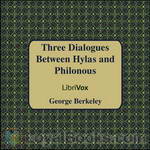 Three Dialogues Between Hylas and Philonous
Three Dialogues Between Hylas and Philonous
Berkeley uses Hylas as his primary contemporary philosophical adversary, John Locke. A Hylas is featured in Greek mythology and the name Hylas is derived from an ancient Greek word for “matter” which Hylas argues for in the dialogues. Philonous translates as “lover of mind.” In The First Dialogue, Hylas expresses his disdain for skepticism, adding that he has heard Philonous to have “maintained the most extravagant opinion… namely, that there is no such thing as material substance in the world.” Philonous argues that it is actually Hylas who is the skeptic and that he can prove it. Thus, a philosophical battle of wit begins. | |
 A Essay Towards a New Theory of Vision
A Essay Towards a New Theory of Vision
| |
 Querist
Querist
| |
 A Proposal for the Better Supplying of Churches in Our Foreign Plantations, and for Converting the Savage Americans to Christianity
A Proposal for the Better Supplying of Churches in Our Foreign Plantations, and for Converting the Savage Americans to Christianity
| |
By: Richard Harding Davis (1864-1916) | |
|---|---|
 Miss Civilization
Miss Civilization
Miss Civilization, a one act comedy, tells the story of a young woman who matches wits with three burglars attempting to rob her house. | |
 Notes of a War Correspondent
Notes of a War Correspondent
Experiences and observations of the journalist in the Cuban-Spanish War, the Greek-Turkish War, the Spanish-American War, the South African War, and the Japanese-Russian War, accompanied by "A War Correspondent’s Kit." | |
 In the Fog
In the Fog
The story is set in London, at an elite gentleman’s club called "The Grill," where an American gentleman arrests the attention of four other men by relating how one night he got lost in a thick London fog. He stumbled upon a house where a double murder was just committed. The victims of the murder were a young nobleman and a Russian princess. He escaped from the house and reported the killings to Scotland Yard. But they were unable to find the location of the dwelling. All very strange, as three of the other gentlemen all offer more information and perspectives on various details of the incident as they endeavor to solve the mystery. (Introduction by Bob Gonzalez) | |
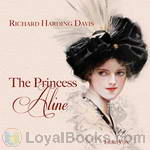 The Princess Aline
The Princess Aline
Morton Carlton, an easy-going, rich young artist, has never taken the concepts of love and marriage all that seriously -- until by accident a copy of an English illustrated paper falls into his hands, which contains a photograph of the young Princess Aline of Hohenwald. Instantly, Carlton is captivated by the princess, and decides that he must meet her. But how to get close to a princess, who lives in a small German duchy well protected by guards and etiquette? Carlton decides to travel to Europe and try his luck... | |
 The Boy Scout and Other Stories for Boys
The Boy Scout and Other Stories for Boys
RICHARD HARDING DAVIS, as a friend and fellow author has written of him, was “youth incarnate,” and there is probably nothing that he wrote of which a boy would not some day come to feel the appeal. But there are certain of his stories that go with especial directness to a boy’s heart and sympathies and make for him quite unforgettable literature. A few of these were made some years ago into a volume, “Stories for Boys,” and found a large and enthusiastic special public in addition to Davis’s general readers; and the present collection from stories more recently published is issued with the same motive... | |
 My Buried Treasure
My Buried Treasure
"This is a true story of a search for buried treasure. The only part that is not true is the name of the man with whom I searched for the treasure. Unless I keep his name out of it he will not let me write the story, and, as it was his expedition and as my share of the treasure is only what I can make by writing the story, I must write as he dictates. I think the story should be told, because our experience was unique, and might be of benefit to others. And, besides, I need the money." (From the text) | |
 Real Soldiers of Fortune
Real Soldiers of Fortune
| |
 The Congo and Coasts of Africa
The Congo and Coasts of Africa
| |
 Men of Zanzibar
Men of Zanzibar
This is the story of Hemingway, who, after a hunting trip in Uganda, settles in Zanzibar for a while to live among the English-speaking expatriate community on that island. While keeping his true identity well to himself, he falls in love with Ms. Polly Adair, the American Belle of the little society. But when he asks her to marry him, it seems that Ms. Adair has a secret... | |
 Lion and the Unicorn
Lion and the Unicorn
What if figures of animals had lives of their own? If the figures of a lion and a unicorn at the shop across the street could talk, what would they say about the little things in life that they see every day on the streets of London? This short story describes the love story of Philip Caroll and Helen Cabot, as witnessed by these two figures.. | |
 Soldiers of Fortune
Soldiers of Fortune
| |
 Cinderella And Other Stories
Cinderella And Other Stories
| |
 Adventures and Letters of Richard Harding Davis
Adventures and Letters of Richard Harding Davis
| |
 With the French in France and Salonika
With the French in France and Salonika
| |
 The Exiles and Other Stories
The Exiles and Other Stories
| |
 Episodes in Van Bibber's Life
Episodes in Van Bibber's Life
| |
 Cuba in War Time
Cuba in War Time
| |
 The Red Cross Girl
The Red Cross Girl
| |
 The Scarlet Car
The Scarlet Car
| |
 The Boy Scout
The Boy Scout
| |
 Once Upon A Time
Once Upon A Time
| |
 A Charmed Life
A Charmed Life
| |